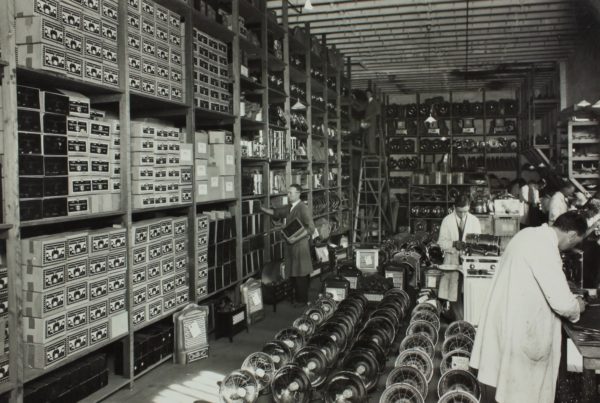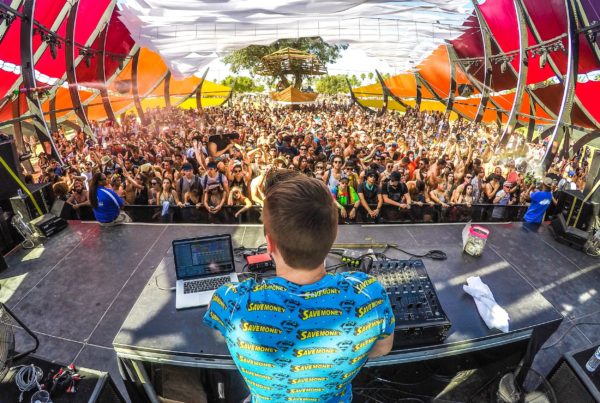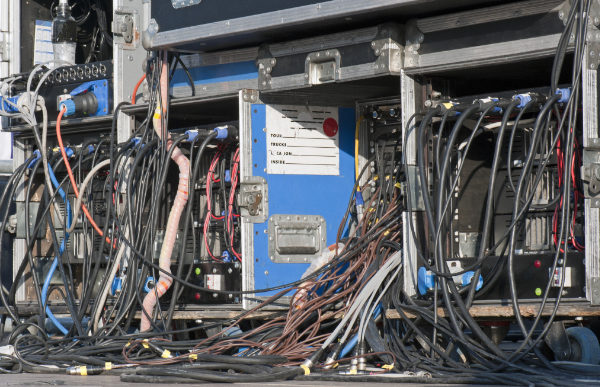Live event management requires incredible feats of timing above and beyond that of traditional corporate project management. Timelines are severely condensed with fewer resources available. For example, Actors Equity suggests a minimum of 1 week of Preproduction for stage managers who often have dozens of cast schedules and departments to coordinate in these brief 40 hours. Live event managers simply have limited time to accomplish what they need to. A planning phase of a production or event lasts mere weeks, but the manager must still tackle all of the same schedule coordination and communication tasks as a large corporate project – only in a much shorter time-frame.
We therefore need tools at our disposal that are far more efficient than the typical corporate manager.
Large-scale corporate projects such as the construction of a building or development of software take years to complete. As is the case anywhere, delays from one department will affect others, but there’s time available to catch up. This isn’t the case for live events. The event start date stays the same regardless of delays or unexpected issues.
Furthermore, corporate projects typically have more resources available. Often, there will be a person or team of people who are responsible for nothing more than updating the plans daily to reflect the most recent changes. They are literally in charge of managing the management software while leaving others free to reference the material and execute the project.
This is why most project management software is built so complex: There are folks who’s job it is to input all of the little nuances, dependencies, and resource changes. The project also lasts long enough that there’s time to build out Six Sigma processes, analyze critical path diagrams, and manually build and update Gantt charts.
As a community, live event managers have rejected traditional management software because it requires that someone pay attention to it full time. With our tight timelines we have no such luxuries in our daily workflow. We need to slam out a production schedule, get to the site visit, and update the ground plan all at the same time.
The tools of traditional PM software are incredibly valuable, they just aren’t built around the realities of live event managers. This is why so few industry people use traditional management software. This is why we need a program like Propared. It helps us not only build and track all the information we store in all of our productions, but it allows us to do it quickly. By creating an application specifically for this industry, we’re able to build in shortcuts that only our industry would appreciate. From a single application, we can analyze schedule and personnel information from an infinite number of angles and then communicate that information to those who need it, all without a team of dedicated software managers.
Every year, my colleagues and I production manage a huge summer theatre festival in New York City- 30 full musicals running in rep in 5 venues over 3 weeks – all together, more than 260 individual performances. During our first year we created individual schedules for every venue, show, department, and vendor.
As the inevitable changes occurred we were stuck with the unenviable task of updating every schedule to reflect the changes. Despite our best efforts, stuff got missed leading to unexpected truck deliveries, missed call times, and other confusion.
We came through because of the incredible folks we had working with us, but I knew we owed them a better experience.
During our second year with the festival, we used the Propared prototype. All our schedule information was in one place and, with a few button clicks, could produce any kind of schedule we needed, all using the same information. Make an update once and it updates everywhere. This one improvement saved us countless hours and mistakes. We were much more confident about being on the same page, and we looked better in front of our clients.
As we all know, at the end of the day, the show is going to happen. It’s how it happens that makes all the difference.



